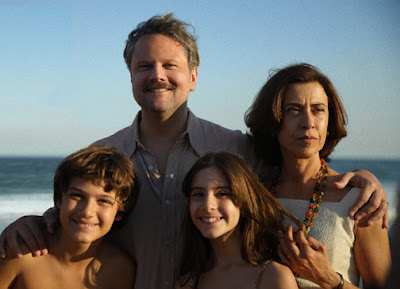This is “Hey kids, let’s put on a show!” writ very large.
The emotional impact is augmented further by the fact that Bollywood director Reema Kagti’s charmer is based on actual events. The often rowdy result is thoroughly entertaining.
Wedding videographer Nasir (Adarsh Gourav), who operates out of a video parlor run by his older brother, is quick with an entrepreneurial hustle but prone to placing bets with money he doesn’t have. He’s often assisted by the handsome Nadeem (Anmol Kajani).
Local journalist Farogh (Vineet Kumar Singh) composes poetry and aspires to become a screenwriter. The doleful Shafique (Shashank Arora), who works a loom in a sweatshop factory, never seems to smile.
Nasir’s staunchest advocate is Shabeena (Muskkaan Jaferi), who always has an encouraging word; alas, he doesn’t love her. Instead, he has long been sweet on Mallika (Riddhi Kumar), but her father never would allow his daughter to marry so lowly an individual. Even so, the two often sneak off to be together.
Nasir, Nadeem, Farogh, Shafique and several of their friends always are first in line, when a new Bollywood hit reaches their town. But Nasir, a rabid movie fan, takes it a step further; he screens silent films by Charlie Chaplin and Buster Keaton in the back room of his brother’s store ... but very few people come.
His “solution” is wildly audacious. Armed with a pair of VCRs, he blends the best scenes from those silent classics with kung fu footage from Bruce Lee and Jackie Chan movies, stitching the results into a sorta-kinda story laden with comedy and action. The result is a smash hit with the locals, who swarm the makeshift theater for repeat viewings ... until police officers smash everything, and warn Nasir to stop pirating.
Although dismayed by the ruins of his brother’s business, Nasir remains undeterred. His next scheme is even more brazen: a shot-for-shot, micro-budget remake of 1975’s Sholay, one of the biggest Bollywood action hits ever made, using solely local talent. He’ll call it Malegaon’s Sholay, in order to evade claims of piracy.
Farogh loves this plan, since it will allow him to write the script ... but no, Nasir points out, there’s nothing to write, since they’ll simply follow the original movie’s template.
Our next movie will be an original, he promises.







